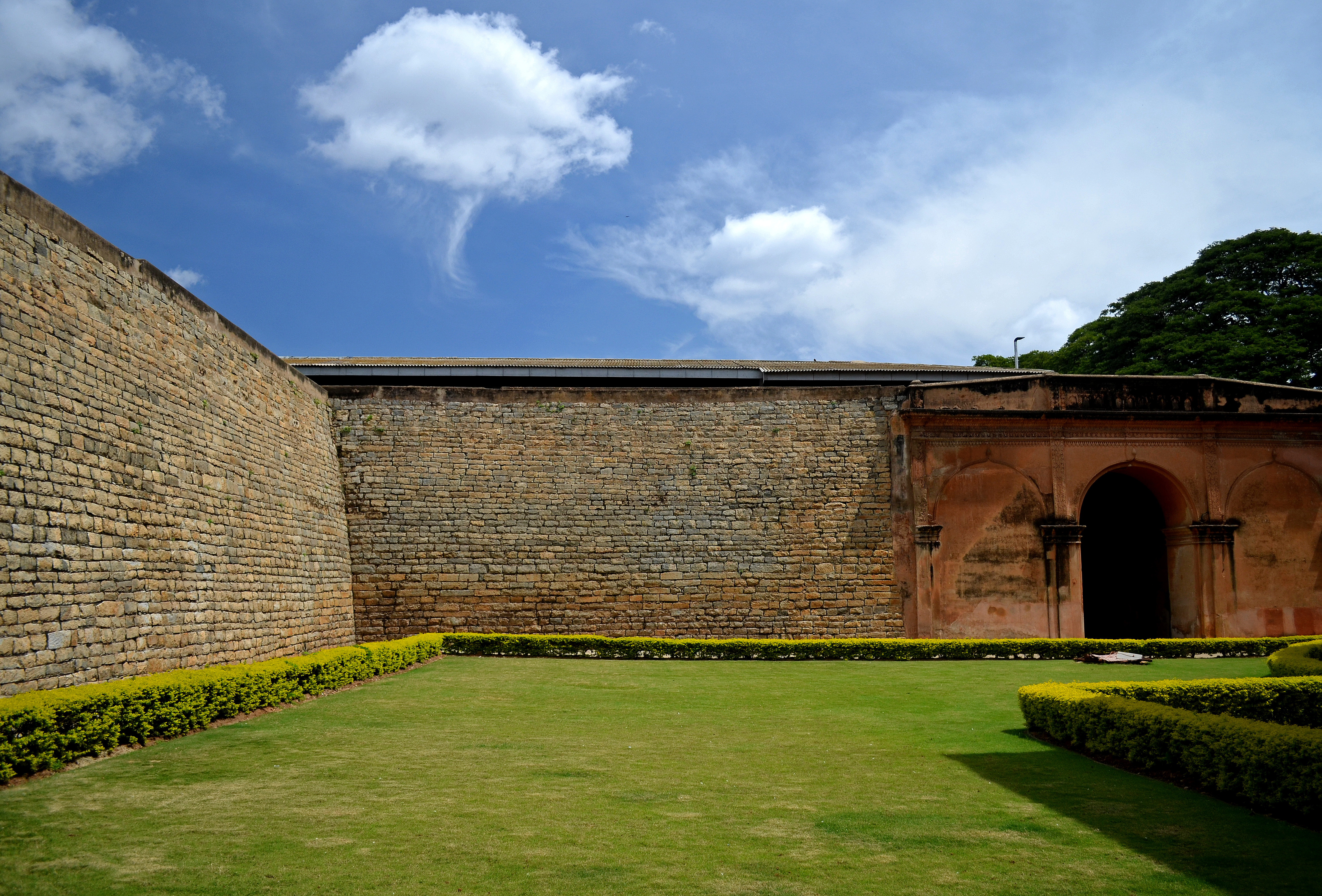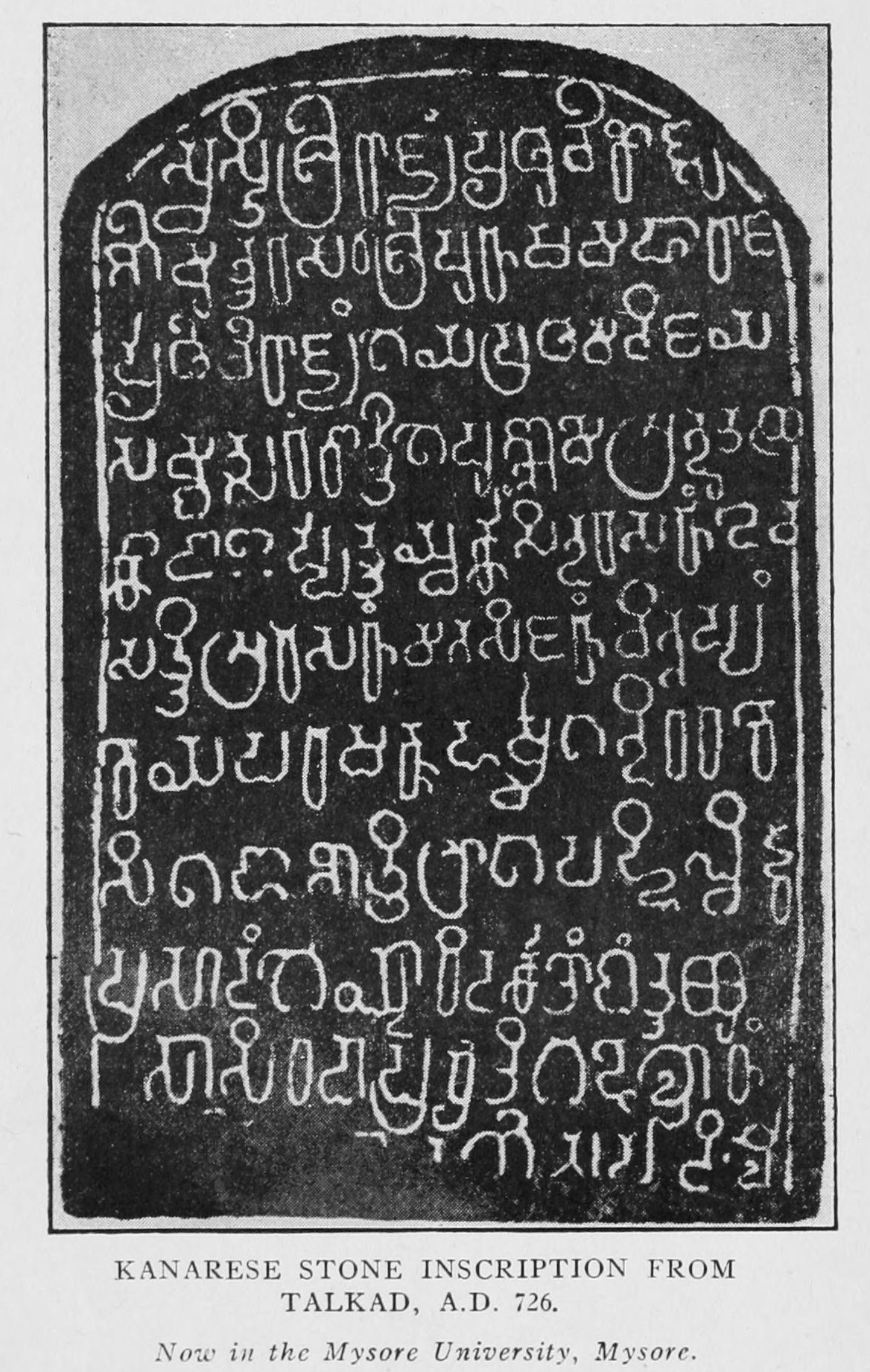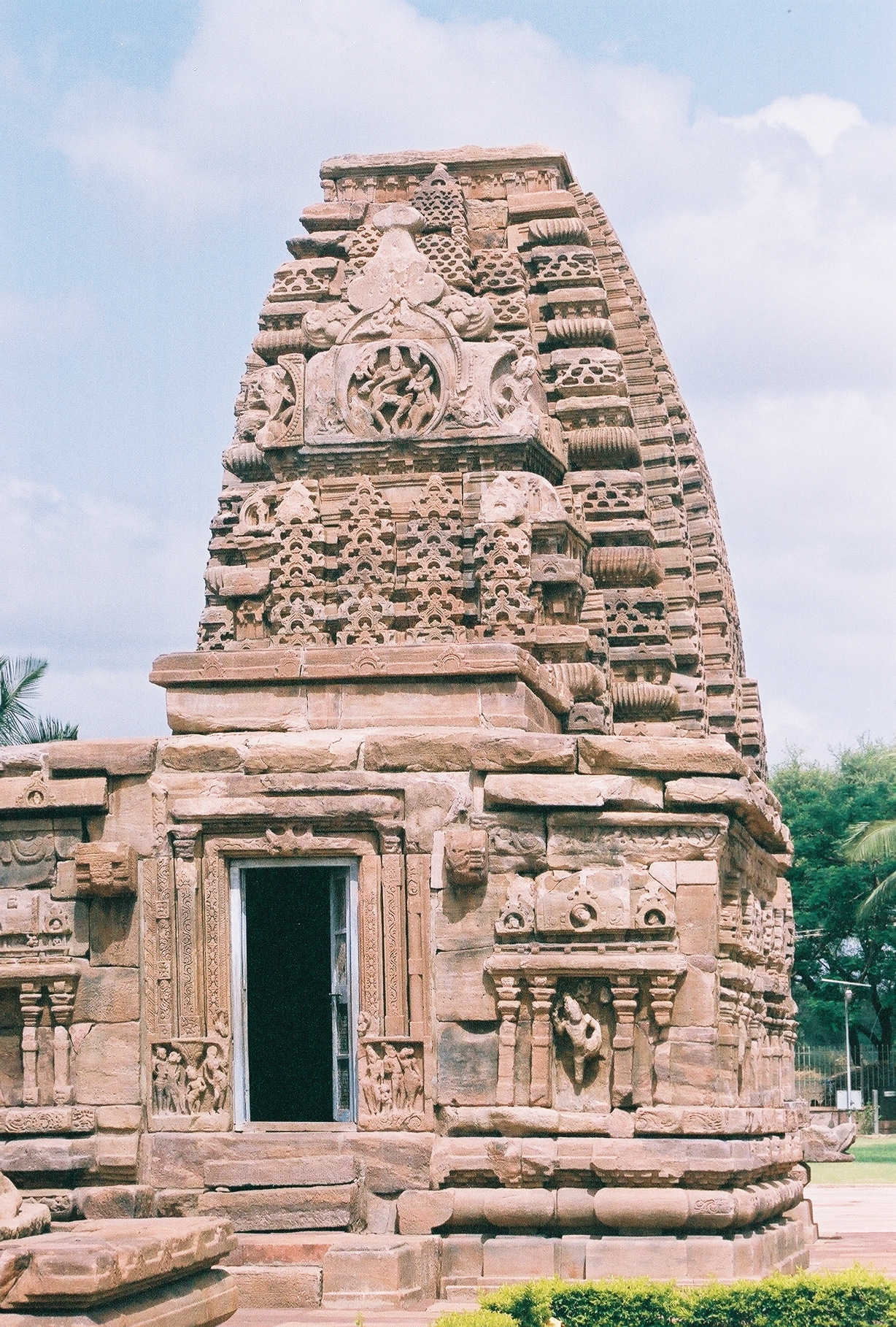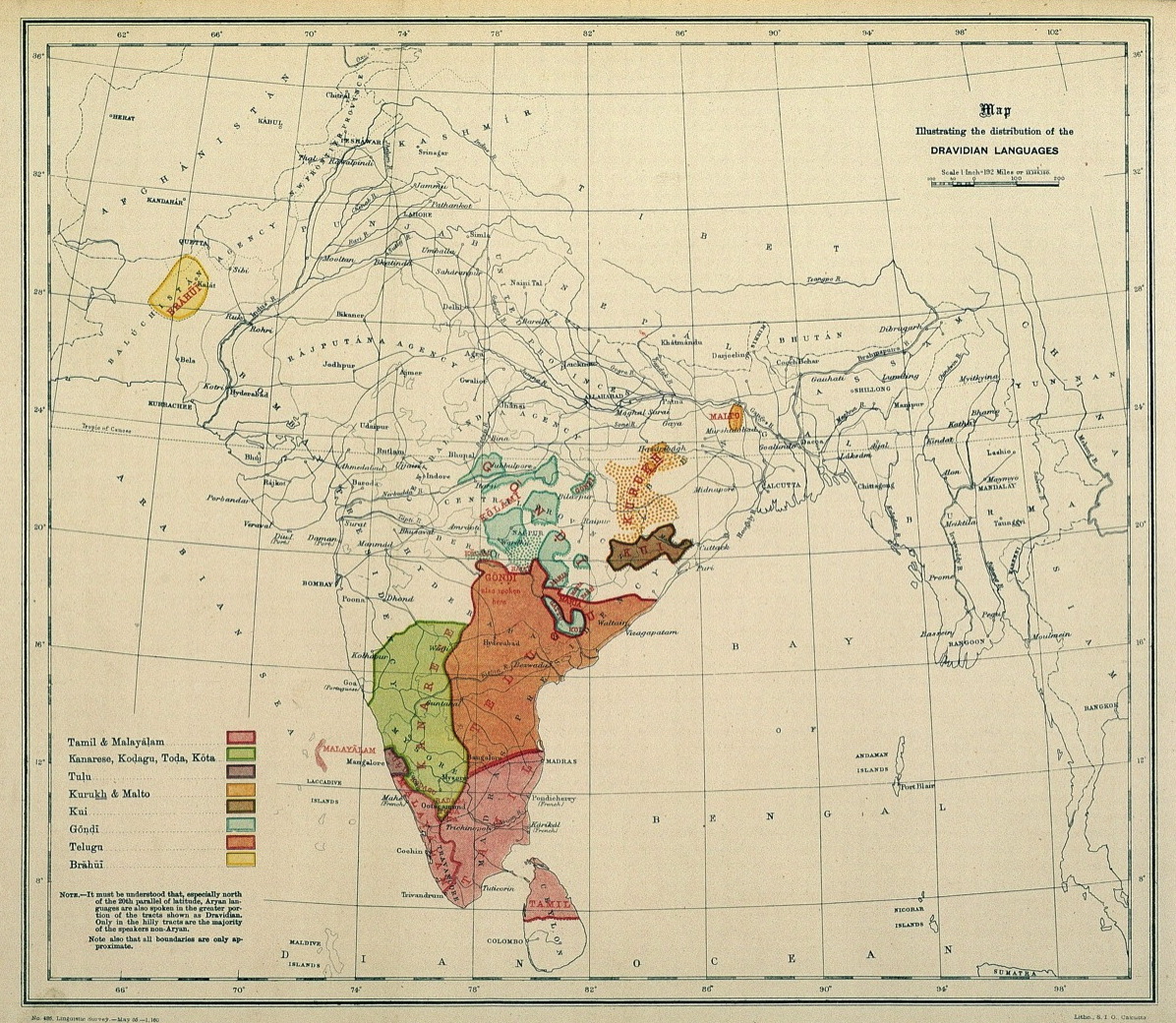|
Vokkaliga
Vokkaliga (also transliterated as Vokkaligar, Vakkaliga, Wakkaliga, Okkaligar, Okkiliyan) is a community, or a group of closely-related castes, from the Indian state of Karnataka. They are also present in the neighbouring state of Tamil Nadu. As a community of warriors and cultivators they have historically had notable demographic, political, and economic dominance in Old Mysore (region). It is believed by some historians that the Rashtrakutas:"The community of the land tillers or agriculturists was known as vokkaligas. The importance given to the cultivation of land is amply demonstrated by the fact that numerous tanks were dug and irrigational facilities were provided at various places. Some of the Rashtrakuta inscriptions found in the Banavasimandala carry the depiction of a plough at the top. There is a view that the Rashtrakutas were originally prosperous cultivators, who later on dominated the political scene. Some of the inscriptions refer to them as Kutumbinah which is inte ... [...More Info...] [...Related Items...] OR: [Wikipedia] [Google] [Baidu] |
Kunchitiga
The Kunchitigas (also known as Kunchatiga, Kanchitiga, Kanchitigar, Kunchitigar, Kunchidigar, Kunchigar, Kunchu Okkaliga, Kunju Okkaliga, Kurichigar, Kunchiliyan, Kappiliyan) are a community of people from Karnataka, India. They are mostly concentrated in the Tumkur, Bangalore, Mysore, Ramanagara and Chitradurga districts. They are also found in Tamil Nadu. While the Kunchitigas are considered a sub-division of Vokkaligas, they are listed separately by the government. Some Kunchitigas were Veerashaivas who embraced Lingayatism to become a separate division. The Kunchitigas are classified under the General/Unreserved Category by the Central Government of India. The Kunchitigas were historically a landholding community of cultivators and merchants. They formed part of the administrative: ”Villages had gramakuta or gavunda (gauda), the village headman. He had under him the village militia^ later called as talaras and tolls.”:”They are, for example, Gavunda chiefs and hegga ... [...More Info...] [...Related Items...] OR: [Wikipedia] [Google] [Baidu] |
Kempegowda I
Kempe Gowda I, locally venerated as Nadaprabhu Kempe Gowda, or commonly known as Kempe Gowda, was a chieftain under the Vijayanagara Empire in early-modern India. He is famous for founding the present-day southern Indian city of Bangalore. Early life Kempe Gowda was born in the Yelahanka suburb of Bangalore in the Morasu Vokkaliga community to Kempananje Gowda, the ruler of Yelhanka for more than 70 years. The Morasu Vokkaligas were Vijayanagara vassals at Yelahanka and belonged to the Gowda community. The community is said to have moved from Kanchi, Tamil Nadu, to Karnataka in the early fifteenth century and served under the Vijayanagara Empire. However, according to other sources, they were originally from Karnataka and were a Kannada-speaking community, although well-versed in Telugu. Kempe Gowda, who is reputed to have shown leadership skills during his childhood, was educated for nine years at a gurukula in Aivarukandapura (or Aigondapura), a village near Hesaraghatta ... [...More Info...] [...Related Items...] OR: [Wikipedia] [Google] [Baidu] |
Gowda (surname)
Gowda (also known as Gauda, Gouda or Gonda) is a surname native to the Karnataka state of India. It is mainly found among the Vokkaligas, Namadhari Naiks, Billavas in south Karnataka and the Lingayats in north Karnataka. It is also used by Kurubas. Gowda was originally an honorific used by the administrative head of a village. Typically, such a head owned land and held political and social sway in the village. Among Kurubas, it was used to refer to the head of the community. Etymology According to historian Suryanath U. Kamath, the word ''Gowda'' derives from ''Gavunda''. The German Indologist Gustav Oppert opined that the root of ‘Gowda’ is a Dravidian word meaning "mountain". The term ''Gowda'' and its archaic forms in Old Kannada such as ''Gamunda'', ''Gavunda'', ''Gavuda'', ''Gonda'', appear frequently in the inscriptions of Karnataka. The ''Epigraphia Carnatica'' is replete with references to land grants, donations to temples, hero-stones (''Veeragallu''), stone e ... [...More Info...] [...Related Items...] OR: [Wikipedia] [Google] [Baidu] |
Kongu Vellalars
Kongu Vellalar is a community found in the Kongu region of Tamil Nadu, India. Etymology The Vellalar of the Kongu country came to be known as Kongu Vellalar. They are also known by names such as "Bupaalan", Gangavamsam, Kudiyaanavar and Vivasaayi, and use the title Gounder as a caste appellation in their personal names. Origin According to the ''Kongu Vellalar Puranam'', a 19th-century work by Mahavidwan Kandasamy Kavirayar, the Vellalar of the Kongu country trace their origin to Marabalan, a mythical figure who was created from the river Ganges to rid the world of hunger. Marabalan turned to agriculture and his descendants became the Vellalar. Marabalan had various titles such as Gangavamsa, Devar, Vellalar, Bupaalan, etc. Interestingly the Gandadikara Vokkaligas of the neighbouring parts of Karnataka also claim origin from the banks of the Ganges.:”Gangadikara is a contraction of the term Gangawadikara (A man of Gangavadi)” According to Burton Stein, the Gangadikara ... [...More Info...] [...Related Items...] OR: [Wikipedia] [Google] [Baidu] |
Nayakas Of Keladi
Nayakas of Keladi (1499–1763), also known as Nayakas of Bednore and Ikkeri Nayakas, were an Indian dynasty based in Keladi in present-day Shimoga district of Karnataka, India. They were an important ruling dynasty in post-medieval Karnataka. They initially ruled as a vassal of the famous Vijayanagar Empire. After the fall of the empire in 1565, they gained independence and ruled significant parts of Malnad region of the Western Ghats in present-day Karnataka, most areas in the coastal regions of Karnataka, and parts of northern Kerala, Malabar and the central plains along the Tungabhadra river. In 1763 AD, with their defeat to Hyder Ali, they were absorbed into the Kingdom of Mysore. They played an important part in the history of Karnataka, during a time of confusion and fragmentation that generally prevailed in South India after the fall of the Vijayanagar Empire. The Keladi rulers were of the Vokkaliga:”Venkatappa. ruled from 1504 to 1551. His son Bhadrappa died b ... [...More Info...] [...Related Items...] OR: [Wikipedia] [Google] [Baidu] |
Gounder
Gounder is a title used by various communities in the Indian state of Tamil Nadu. It may refer to communities such as the , Kongu Vellalars , Kurumbas, Tuluva Vellalars, Uralis, Vanniyars, Vettuvars and Vokkaligas. Etymology There are number of derivations for the title. One theory derives it from the Tamil word ''Kaamindan'', meaning "noble protector of the country", later modified as ''Kavundan'' or Gounder. According to S. N. Sadasivan the Tamil Kavundans or Goundans branched off from the Vokkaligas and both might have a common origin from the Kuruba. History During the British Raj The British Raj (; from Hindi ''rāj'': kingdom, realm, state, or empire) was the rule of the British Crown on the Indian subcontinent; * * it is also called Crown rule in India, * * * * or Direct rule in India, * Quote: "Mill, who was himsel ... era, some Gounders migrated to Malayan rubber plantations as Kanganis to manage the coolies. References Tamil society Indian surnames ... [...More Info...] [...Related Items...] OR: [Wikipedia] [Google] [Baidu] |
Kannada
Kannada (; ಕನ್ನಡ, ), originally romanised Canarese, is a Dravidian language spoken predominantly by the people of Karnataka in southwestern India, with minorities in all neighbouring states. It has around 47 million native speakers, and was additionally a second or third language for around 13 million non-native speakers in Karnataka. Kannada was the court language of some of the most powerful dynasties of south and central India, namely the Kadambas, Chalukyas, Rashtrakutas, Yadava Dynasty or Seunas, Western Ganga dynasty, Wodeyars of Mysore, Nayakas of Keladi Hoysalas and the Vijayanagara empire. The official and administrative language of the state of Karnataka, it also has scheduled status in India and has been included among the country's designated classical languages.Kuiper (2011), p. 74R Zydenbos in Cushman S, Cavanagh C, Ramazani J, Rouzer P, ''The Princeton Encyclopedia of Poetry and Poetics: Fourth Edition'', p. 767, Princeton Unive ... [...More Info...] [...Related Items...] OR: [Wikipedia] [Google] [Baidu] |
Hegde
Hegde means the Headman of the village. Hegde or Heggade Pergade is a surname found mainly in the coastal Karnataka region in India which is found in different communities. It is found amongst Hindus of the Bunt community, Saraswat brahmins, Jain Bunt community, Havyaka Brahmins, Vokkaligas in Karnataka. The name derives from the Old Kannada word Pergade which means chief. Etymology The word ''Hegde'' is derived from the Old Kannada word ''Pergade'' which means ''chief''. Notable people The following is a list of notable people with last name Hegde. Film Industry * Ganesh Hegde, choreographer * Latha Hegde, Indian actress * Pakhi Hegde, Indian actress * Pooja Hegde, Indian model and actress * Samyuktha Hegde, Indian actress * Sanjith Hegde, Indian singer and songwriter * Satya Hegde, cinematographer * Senna Hegde, Indian director * Manjunath Hegde Kelase, cinematographer Politicians * Ananth Kumar Hegde, Indian politician and MP * K. S. Hegde, former Speaker of the Lok Sab ... [...More Info...] [...Related Items...] OR: [Wikipedia] [Google] [Baidu] |
Tulu Gowda
Tulu may refer to: People *Derartu Tulu (born 1972), Ethiopian long-distance runner *Walid Yacoubou (born 1997), Togolese footballer nicknamed "Tulu" India *Tulu calendar, traditional solar calendar generally used in the regions of southwest Karnataka and the Kasaragod district *Tulu cinema, part of the film industry in India *Tulu Gowda, a subsect of the Vokkaliga community in Karnataka *Tulu Kingdom, a small kingdom during the period of Puranas, now thought to be the Tulu-speaking areas in southwestern Karnataka *Tulu language, a language spoken in Karnataka and in the Kasaragod district *Tulu Nadu, a Tulu-speaking region spread over parts of present Karnataka state and the Kasaragod district *Tulu people, an ethnolinguistic group native to the coastal Karnataka region *Tulu script Tulu () in Kannada script, ml, തുളു ഭാഷെ in Malayalam script. ''bhāṣe'', , ''bhāśe'', and ''bāśe'' are alternative spellings for the Tulu word ''bāse'' in the K ... [...More Info...] [...Related Items...] OR: [Wikipedia] [Google] [Baidu] |
Western Ganga Dynasty
Western Ganga was an important ruling dynasty of ancient Karnataka in India which lasted from about 350 to 1000 CE. They are known as "Western Gangas" to distinguish them from the Eastern Gangas who in later centuries ruled over Kalinga (modern Odisha and Northern Andhra Pradesh). The general belief is that the Western Gangas began their rule during a time when multiple native clans asserted their freedom due to the weakening of the Pallava empire in South India, a geo-political event sometimes attributed to the southern conquests of Samudra Gupta. The Western Ganga sovereignty lasted from about 350 to 550 CE, initially ruling from Kolar and later, moving their capital to Talakadu on the banks of the Kaveri River in modern Mysore district. After the rise of the imperial Chalukyas of Badami, the Gangas accepted Chalukya overlordship and fought for the cause of their overlords against the Pallavas of Kanchi. The Chalukyas were replaced by the Rashtrakutas of Manyakheta in 75 ... [...More Info...] [...Related Items...] OR: [Wikipedia] [Google] [Baidu] |
Rashtrakutas
Rashtrakuta (IAST: ') (r. 753-982 CE) was a royal Indian dynasty ruling large parts of the Indian subcontinent between the sixth and 10th centuries. The earliest known Rashtrakuta inscription is a 7th-century copper plate grant detailing their rule from manapur a city in Central or West India. Other ruling Rashtrakuta clans from the same period mentioned in inscriptions were the kings of Achalapur and the rulers of Kannauj. Several controversies exist regarding the origin of these early Rashtrakutas, their native homeland and their language. The Elichpur clan was a feudatory of the Badami Chalukyas, and during the rule of Dantidurga, it overthrew Chalukya Kirtivarman II and went on to build an empire with the Gulbarga region in modern Karnataka as its base. This clan came to be known as the Rashtrakutas of Manyakheta, rising to power in South India in 753 AD. At the same time the Pala Empire, Pala dynasty of Bengal and the Prathihara, Prathihara dynasty of Malwa were gaining ... [...More Info...] [...Related Items...] OR: [Wikipedia] [Google] [Baidu] |
Dravidian Languages
The Dravidian languages (or sometimes Dravidic) are a family of languages spoken by 250 million people, mainly in southern India, north-east Sri Lanka, and south-west Pakistan. Since the colonial era, there have been small but significant immigrant communities in Mauritius, Myanmar, Singapore, Malaysia, Indonesia, Philippines, United Kingdom, Australia, France, Canada, Germany, South Africa, and the United States. The Dravidian languages are first attested in the 2nd century BCE, as Tamil-Brahmi script, inscribed on the cave walls in the Madurai and Tirunelveli districts of Tamil Nadu. The Dravidian languages with the most speakers are (in descending order of number of speakers) Telugu, Tamil, Kannada and Malayalam, all of which have long literary traditions. Smaller literary languages are Tulu and Kodava. There are also a number of Dravidian-speaking scheduled tribes, such as the Kurukh in Eastern India and Gondi in Central India. Outside of India, Brahui is mo ... [...More Info...] [...Related Items...] OR: [Wikipedia] [Google] [Baidu] |





